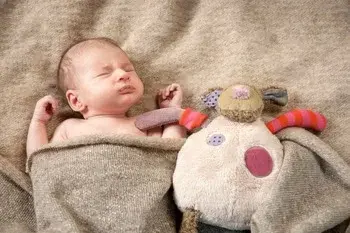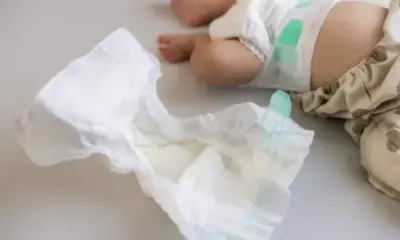Sleep
Baby Dreams: Do They Dream and What Could Be in Their Minds?

Babies spend most of their time sleeping, which raises the question: do babies dream? While babies can’t tell us themselves, researchers have studied their sleep patterns. Experts believe babies experience dreams during REM sleep, a phase linked to dreaming in adults. So, what might babies dream about, and do these dreams affect them? Read on to discover more about baby dreams and their fascinating sleep world.
Understanding Baby Sleep and Dreams
Babies enter REM sleep regularly, the stage when most dreaming occurs. This fact supports the idea that babies do dream, although these dreams may differ from adult dreams. During REM sleep, the brain processes memories and experiences. Since newborns spend a lot of time in this sleep phase, they likely have simple dreams or mental activity while sleeping.
What Scientists Say About Baby Dreams
According to Kelsey Alford, a pediatric nurse practitioner, babies have REM sleep where dreaming happens. She explains that although we can’t know exactly what babies dream about, their brains are active during this sleep stage. Babies may dream about familiar sounds, faces, or sensations from their waking life or even from the womb.
What Could Babies Dream About?
Since babies don’t have complex memories or experiences, their dreams likely involve simple images or sensations. These may include the soothing sound of a caregiver’s voice, warmth, or familiar shapes. Researchers suggest that baby dreams lack complexity but still reflect their sensory world. Dream content probably evolves as babies grow and start to recognize their surroundings.
Do Babies Have Nightmares?
Parents often worry if babies have bad dreams or nightmares. Experts reassure that newborns rarely experience nightmares. Observations of babies during REM sleep show facial expressions like grimaces or cries. However, these usually relate to physical needs like hunger or discomfort, not scary dreams. Nightmares typically begin after age two, when imagination and fears develop.
How Baby Dreaming Changes Over Time
Babies’ sleep and dream patterns change with age. For example, newborns spend a higher percentage of sleep in REM than adults. By about four months, REM sleep begins to shift and fragment. This change coincides with typical sleep regressions. As babies grow, their dreams may become more vivid and connected to their daily experiences.
When Do Babies Start Dreaming?
Babies likely start dreaming from birth, as REM sleep occurs almost immediately. The first few months include frequent REM phases where dreaming can happen. Sleep experts note that from birth to around four months, babies cycle quickly through sleep stages, providing many opportunities to dream.
Why Understanding Baby Dreams Matters to Parents
Knowing that babies do dream reassures parents about normal sleep behaviors. Babies’ sleep movements, noises, or expressions during sleep often relate to their dreams or physical needs. Recognizing these signs helps parents respond calmly. Moreover, understanding baby dreams deepens the connection between caregivers and infants during sleep times.
Explore More News on This Website
For more insights on baby care, sleep tips, and parenting advice, explore our other articles. Stay updated and support your baby’s healthy development with trusted information.




